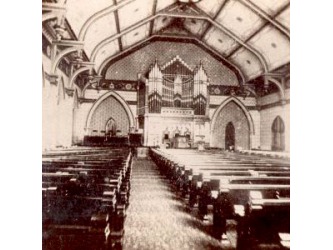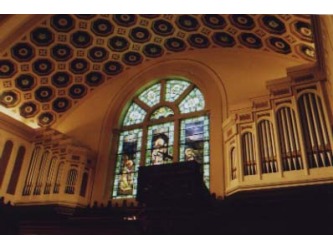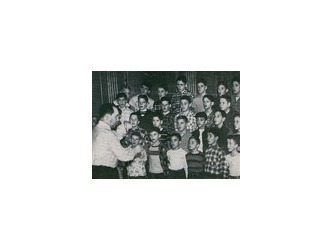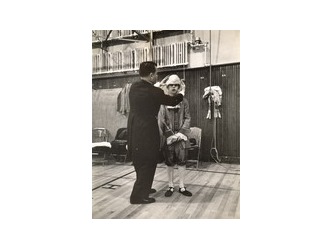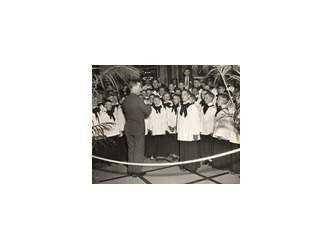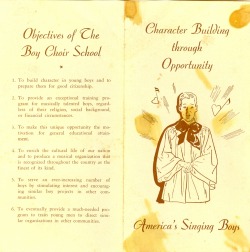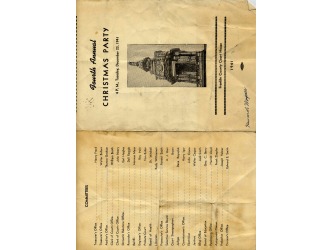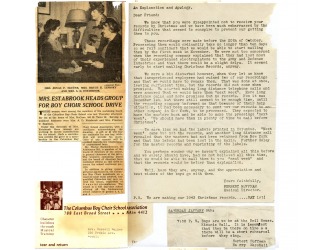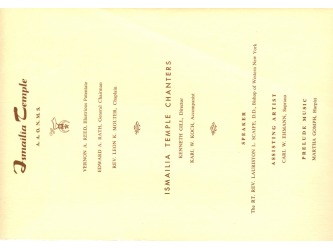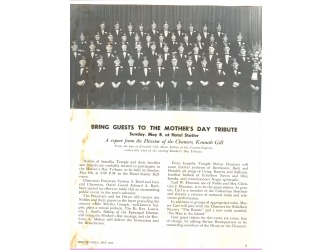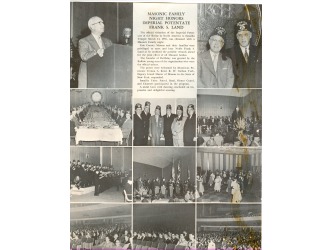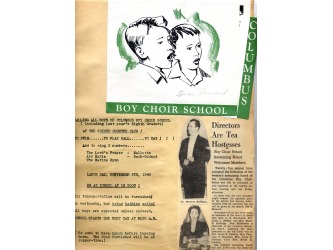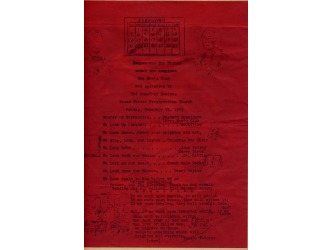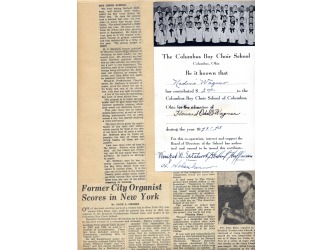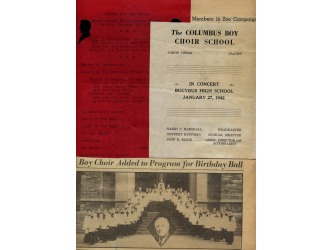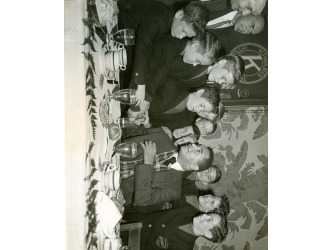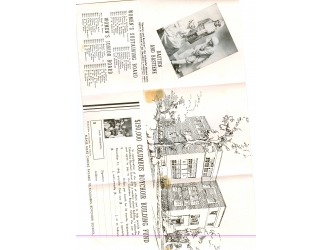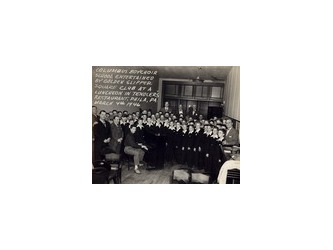The Dream
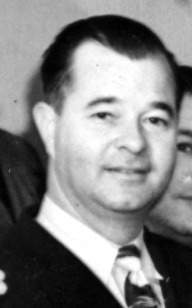
Herbert Huffman
Herbert Huffman, the founder of the Broad Street Choir and the Columbus Boychoir, was a dedicated and auspicious musician and community leader. Huffman and his wife Mary, were members of the first graduating class of the renowned Westminster Choir School in Dayton, Ohio. As a contemporary of Dr. John Finely Williamson, Huffman was influenced by his personal outlook, educational philosophy, and dedication of service. Consequently, Westminster Choir College's unique program reinforced and empowered Huffman's musicianship, ideals, religious values, and commitment to music and its transformative power. In 1934, just five years after his graduation, Huffman became the music minister of the Broad Street Presbyterian Church in Columbus, Ohio. As newly appointed minister of music, Huffman moved quickly to establish and implement the "Westminster Plan" as promoted by Dr. Williamson. As a result, he started the Broad Street choir and eventually instituted the Columbus Boychoir in 1937. The "Westminster Plan" was a specific plan that was meant to be replicated by music ministers in order to initiated and develop quality worship music. One may suggest that the dream of the Columbus Boychoir was a result of Huffman's Westminster experience and the tenents of the "Westminster Plan". Nonetheless, Huffman's determination, close personal connections, commitment to quality music and youth development lead him to create a legacy that continues to inspire and impact the lives of youth boys today.
The Mission
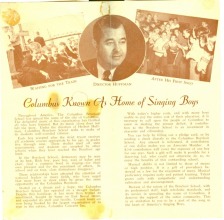
The founding mission of the American Boychoir School as set forth in 1937 by the founder Herbert Huffman:
1. To build Character in young boys and prepare them for good citizenship.
2. To provide an exceptional training program for musically talented boys, regardless of their religion, social background, or financial circumstances.
3. To make this unique opportunity the motivation for general educational attainment.
4. To help enrich the cultural life of the nation and produce a musical organization that is recognized throughout the country as the finest of its kind.
Early Development
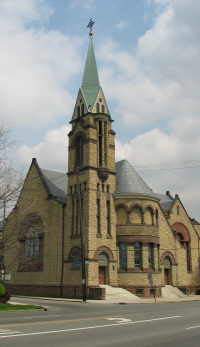
The 1930's and 40's was certainly not a developmentally fertile stage of social and institutional growth. Plagued by global conflict and a recovering economy, Herbert Huffman and his staff faced insurmountable circumstances, which under conventional conditions would be to powerful to overcome. Nevertheless, The Columbus Boychoir rapidly grew and defied the development trends of the time. One may suggest, that Herbert Huffmanís personal and social connections provided a firm foundation for the early development of the institution. In 1937, utilizing his post at the Broad Street Presbyterian church and membership in the Columbus Kiwanis Club, Huffman organized and instituted the Columbus Boychoir. For several decades, the Kiwanis Club and the Broad Street Presbyterian Church served as co-sponsors for the choir. Each institution was a vital fertilizer that provided the choir with the basic necessities. The church provided the choir a building to rehearse and perform in, and the Kiwanis club provided monetary donations that enabled Huffman to hire an accompanist, purchase music, and produce concerts. Throughout the choirís early history, Huffman established numerous working relationships with local and national businesses, Various media agencies, and a variety of nonprofit, religious, artistic, educational, and benevolent organizations. Consequently, many of the performances on the concert calendar were private concerts for benefactors and private organizations. Such Organizations include The Kiwanis Club, Rotary International, the Shrinerís of North America, and private tea parties hosted by the Columbus Boychoir's Women's Support Board. In addition, Huffman worked hard to ecumenicize the Boychoir and develop relationships with other religious denominations. To this day, many of the boychoirís financial donors credit their dedicated support their first concert. The relationships fostered by private performances provided Huffman with the financial means to develop an accompanying choir school, expand performance opportunities outside Columbus, promote the artistic integrity and superiority of the Columbus Boychoir.
